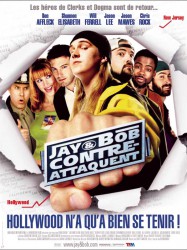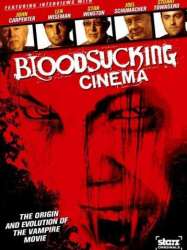Oh, What a Lovely Tea Party est un film de genre Documentaire réalisé par Jennifer Schwalbach Smith avec Kevin Smith
Oh, What a Lovely Tea Party (2004)

Si vous aimez ce film, faites-le savoir !
- Infos
- Casting
- Infos techniques
- Photos
- Vidéos
- Passages TV
- Citations
- Personnages
- Musique
- Récompenses
Réalisé par Jennifer Schwalbach Smith
Genres Documentaire
Themes Film traitant du cinéma, Documentaire sur le monde des affaires, Documentaire sur le cinéma, Documentaire sur les films
Note65%










Oh, What a Lovely Tea Party is a 2004 documentary about the making of Jay and Silent Bob Strike Back, released and produced by Kevin Smith's View Askew Productions. The 3-hour work marks the directorial debut of Jennifer Schwalbach Smith, Kevin Smith's wife.
It was originally intended to be a bonus feature on the Jay and Silent Bob Strike Back DVD, but due to its length it became a standalone feature. Plans to include it on the Clerks X DVD were scrapped for similar reasons. It has since been screened at several of Kevin Smith's "Vulgarthon" film festivals. According to a Q&A session with Smith in Vancouver in early 2009, it would be included in full on a future Blu-ray Disc release of Clerks, and it was on the November 2009 release.
Acteurs

Kevin Smith
(Lui-même)

Jason Mewes
(Lui-même)

Jason Biggs
(Lui-même)

Brian O'Halloran
(Lui-même)

Will Ferrell
(Lui-même)
Commentaires
Postez un commentaire :
Suggestions de films similaires à Oh, What a Lovely Tea Party
Il y a 179 films ayant les mêmes acteurs, 0 films avec le même réalisateur, 8965 ayant les mêmes genres cinématographiques, 1087 films qui ont les mêmes thèmes (dont 96 films qui ont les mêmes 4 thèmes que Oh, What a Lovely Tea Party), pour avoir au final 70 suggestions de films similaires.Si vous avez aimé Oh, What a Lovely Tea Party, vous aimerez sûrement les films similaires suivants :
 , 1h44
, 1h44Réalisé par Jon Schnepp
Origine Etats-Unis
Genres Drame, Documentaire, Action, Aventure
Thèmes Film traitant du cinéma, L'enfance, Documentaire sur le monde des affaires, Documentaire sur le cinéma, Superman, Extra-terrestres, Super-héros, Documentaire sur les films, Extraterrestre
Acteurs Nicolas Cage, Tim Burton, Kevin Smith, Jon Schnepp, Grant Morrison, Lorenzo di Bonaventura
Note70%





Un documentaire sur "Superman Lives" le film avorté de Tim Burton avec Nicolas Cage.
 , 1h35
, 1h35Origine Etats-Unis
Genres Documentaire
Thèmes Mise en scène d'un animal, Film traitant du cinéma, Film sur un écrivain, L'enfance, Informatique, Documentaire sur le monde des affaires, Documentaire sur l'art, Documentaire sur le cinéma, Mise en scène d'une araignée, Spider-Man, Super-héros, Cyberpunk, Documentaire sur les films, Documentaire autobiographique
Acteurs Stan Lee, Kevin Smith
Note69%






Réalisé par Zak Charles Knutson
Genres Comédie, Documentaire
Thèmes Documentaire sur le monde des affaires, Documentaire sur le cinéma, Documentaire sur une personnalité
Acteurs Kevin Smith, Jennifer Schwalbach Smith, Harley Quinn Smith
Note78%






Getting Gilliam (2005)
Réalisé par Vincenzo Natali
Origine Canada
Genres Documentaire
Thèmes Film traitant du cinéma, Documentaire sur le monde des affaires, Documentaire sur le cinéma, Documentaire sur les films
Acteurs Brendan Fletcher, Terry Gilliam, Jeremy Thomas
Note65%






Inside Deep Throat (2005)
, 1h31Origine Etats-Unis
Genres Documentaire, Historique, Pornographique
Thèmes Film traitant du cinéma, Politique, Sexualité, La pornographie, Documentaire sur le monde des affaires, Documentaire sur le cinéma, Politique, Documentaire sur les films
Acteurs Dennis Hopper, Peter Bart, Warren Beatty, John Waters, Tony Bill, Gore Vidal
Note66%





Considéré comme le film le plus rentable de tous les temps, Gorge profonde fut bien plus qu'une curiosité pour adultes et une réussite financière. Sorti en 1972, au moment où les Etats-Unis découvraient les mouvements pour la libération sexuelle et les valeurs de la contre-culture, ce film au contenu sexuellement explicite déclencha une tempête sociale et politique sans précédent. Gorge profonde devint un phénomène culturel majeur, dont l'impact se ressent encore aujourd'hui. Plus de trente ans après les scandales provoqués par ce classique du cinéma porno, le documentaire Inside Deep throat examine l'incroyable abîme entre les modestes intentions des créateurs du film et l'héritage qu'ils ont involontairement laissé.

Interior. Leather Bar. (2013)
, 1hRéalisé par James Franco, Travis Mathews
Origine Etats-Unis
Genres Drame, Documentaire
Thèmes Film traitant du cinéma, Sexualité, Homosexualité, Documentaire sur le monde des affaires, Documentaire sur le cinéma, Documentaire sur l'homosexualité, Documentaire sur les films, LGBT, LGBT
Acteurs James Franco, Brenden Shucart, Michael Lannan, Travis Mathews, Joel Michaely
Note50%





Le film présente James Franco et Travis Mathews dans leur propre rôle, travaillant ensemble sur un projet de film dont le but est d'imaginer et de recréer les 40 minutes du film La Chasse sorti en 1980, contenant des scènes à caractère sexuel explicite, qui avaient alors été censurées et supprimées. Les autres acteurs présents à l'écrans sont Val Lauren, Christian Patrick, Brenden Gregory, Brad Roberge, Colin Chavez et A.J. Goodrich.

Jay & Bob contre-attaquent (2001)
, 1h45Réalisé par Kevin Smith
Origine Etats-Unis
Genres Comédie
Thèmes Maladie, Psychotrope, Transport, Automobile, Road movie, Buddy movie
Acteurs Jason Mewes, Kevin Smith, Jason Lee, Ben Affleck, Shannon Elizabeth, Eliza Dushku
Note67%





Jay et Silent Bob découvrent que Bluntman and Chronic, l'adaptation en comics de leur vie, va être adapté au cinéma par Miramax. Sur internet, « les gens bavent » - selon l'expression de Jay - d'ores et déjà sur eux et sur le film. Jay et Bob décident donc de se rendre à Hollywood, pour faire annuler le tournage et redorer leur blason ou à défaut, pour récupérer l'argent des droits d'auteur qu'on ne leur verse pas.
 , 1h36
, 1h36Réalisé par Eleanor Coppola, George Hickenlooper
Origine Etats-Unis
Genres Documentaire
Thèmes Film traitant du cinéma, Documentaire sur le monde des affaires, Documentaire sur le cinéma, Politique, Documentaire sur les films
Acteurs Francis Ford Coppola, Marlon Brando, John Milius, Eleanor Coppola, Orson Welles, Sofia Coppola
Note80%





Le documentaire présente le célèbre réalisateur Francis Ford Coppola et son film Apocalypse Now (1979), qui, tourmenté par ce scénario extraordinaire, voit sa vie et sa carrière presque anéanties par les problèmes de tournage, de budget et de casting. C'est un document sur les événements sensationnels qui entourent l'élaboration d'Apocalypse Now et la lutte du réalisateur contre la nature, les gouvernements, les acteurs et le doute de soi. Certaines séquences sonores ont été enregistrées secrètement par Eleanor Coppola, son épouse.

Bloodsucking Cinema (2007)
Genres Documentaire
Thèmes Film traitant du cinéma, Documentaire sur le monde des affaires, Documentaire sur le cinéma, Vampire, Documentaire sur les films
Acteurs Stan Winston, Stuart Townsend, Stephen Sommers, Joel Schumacher, Gregory Nicotero, Cheech Marin
Note60%






Réalisé par Ed Wood
Origine Etats-Unis
Genres Drame, Comédie, Documentaire
Thèmes Film traitant du cinéma, Sexualité, La pornographie, Documentaire sur le monde des affaires, Documentaire sur le cinéma, Documentaire sur les films
Acteurs Ed Wood, Duke Moore
Note58%





 Connexion
Connexion